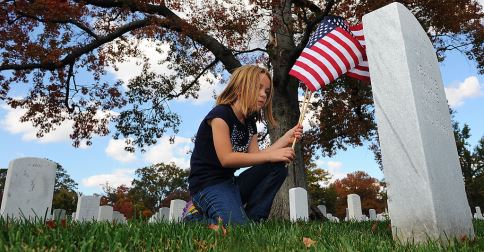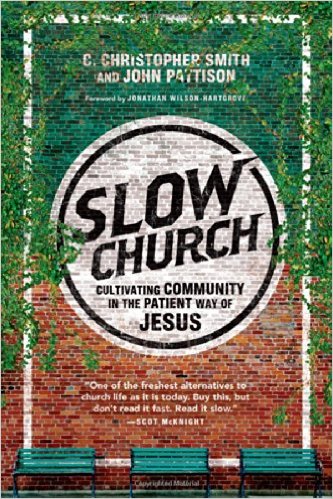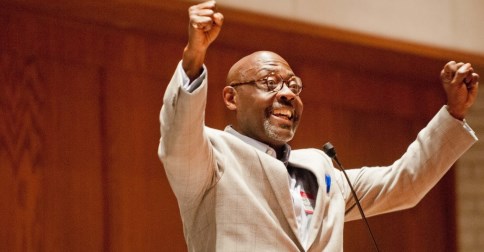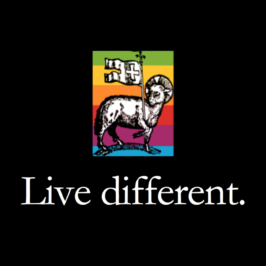
American democracy is dead.
Or, maybe it was simply a pipe-dream that never came to life. Or maybe it died years ago, and has merely lingered on life support.
Regardless, we are faced with a presidential election in which the only two viable candidates have both demonstrated that they don’t care a bit about democratic process. Donald Trump’s campaign trail has been strewn with ego-laden and authoritarian promises that if elected, he will abuse the powers of the presidential office. Hillary Clinton has apparently colluded with the Democratic National Convention to undercut the electoral process throughout the primary season. These examples are only the tip of the massive iceberg of evidence that both candidates regularly subvert the truth and the law of the land to serve their own lusts for wealth and power. (Although Clinton has likely been more coy and graceful about keeping up the appearance of working within the system.)
It is abundantly clear that neither candidate will serve the interests of marginalized communities. Along the campaign trail, Trump has unfurled rhetorical violence and threatened and encouraged actual violence against just about everyone who is not a white male. Trump has become the champion of lower-class whites who have largely been ignored by both major parties. The irony of this, of course, is that there seems to be no recognition of the incongruity between his promises to these constituents and the economic practices (of outsourcing, etc.) that have contributed to his wealth over the last three decades, and that will doubtfully change once he is in office. Clinton on the other hand is the poster child for the economic status quo, a system in which the there is a widening gap between the wealthiest of the elite and the rest of the American populace. She voted to use public money to bail out the banks, and has been heavily funded by Goldman Sachs. She also is a major supporter of the military-industrial complex, which not only incites anti-American sentiments in the middle east and elsewhere, it is increasingly supporting the escalation of police violence against people of color (remember the television images of tanks on the streets of Ferguson, etc.)
The future does not bode well for our nation, regardless of which candidate is elected. We have sown the proverbial wind and are now reaping the whirlwind. Our land has been built on violence against slaves, Native peoples, and lower class workers. In past ages, much of this violence could be hidden or justified through the legal process, but with the rise of internet technologies that document our every move, and with an increasingly diverse population, our nation is being called to account for our incessant violence.
Who knows what chaos will ensue if Trump is elected? He has shown no regard for anyone or anything that stands in his way. What will become of Congress or the Supreme Court? Who will he offend in the international arena, initiating military action against the U.S.? Hillary might be able to sustain the appearance of order that has guided our land for many decades, but her election will only incite the violence that is seething beneath the surface of lower class Trump supporters. What will Trump’s reaction be if he is not elected? Who knows.
My aim here is not fear-mongering. I am actually quite hopeful, but my hope does not lie in either candidate, or even in the propagation of American democracy. It is in this chaos that our churches are reminded that our primary call is not to make our nation embody Christian principles, but rather to embody Christ together in our local church communities, to know and love our neighbors and to enter compassionately (from the Latin roots meaning suffering with ) into their struggles. To what extent are our churches diverse communities in which there is not a needy person among us? We are paying the price now for American churches who for too long have hungered after power. Both the Religious Right and the Religious Left have focused their energy and resources on wielding the power of American democracy, and these struggles have only amplified the fragmentation of the culture in which we live, and largely ignored the struggles of those on the margins of society. In our hunger to control the strings of power, we’ve forgotten that we are called above all to be a people who embody a different kind of society. “The church does not have a social strategy,” write Stanley Hauerwas and Will Willimon in their classic book Resident Aliens, “the church is a social strategy.”
This conviction lies at the heart of Slow Church. Our politics is centered on the local church’s work of embodying a social order that reflects the love, compassion and justice of Jesus in our own particular places. This is our primary calling, and it is difficult, messy and slow work. It’s much more efficient to endorse a candidate and to leave politics to the politicians. Of course, certain political platforms – at the local, state and national levels – will be more compatible with this calling, and we might choose to vote for such candidates but doing so must be undertaken with a substantial dose of humility, and a deep sense that our primary political work is undertaken in being faithful together as the local church.
Yes, make no mistake, American democracy is dead. Let us lament our complicity in the injustices that have destroyed it. But as we lament, let us also recognize the opportunity that is now presented to us. Our illusions that we could fix the American system have died as well. In light of the hegemony that lies ahead in the authoritarianism of Trump or the elitism of Clinton, the only option that faithful Christians have is to be the church.
This is the way the kingdom comes.
This is the way the kingdom comes.
This is the way the kingdom comes.
Not with a bang but a whisper.
(HT: T.S. Eliot remixed, lest someone accuse me of plagiarism).







![Book Giveaway – Reading For the Common Good [3 copies]](http://slowchurch.com/wp-content/uploads/2017/05/RFTCG-Cover-Banner.jpg)


4 Responses
Paula
There are a number of things that trouble me about this, and what will likely be the inevitable reaction.
Whenever Christians point a shaky figure at some human system that isn’t working and propose our own selves, and our ability to craft better institutions as the answer, I wonder, do we really know ourselves? Maybe there are a handful of religious communities that have not been tainted by human sin and pride — I don’t know them. Give most of them a generation or two, and some deeply compromised leader will emerge. But for how many generations have we said “We know exactly what to do, watch us this time and we’ll show you how to live with all the best ideals!”
Also, seeing Trump and Clinton as mirror images raises more questions than it answers. Their behavior hasn’t been perfectly similar and I’m unclear their motivations were identical. Were they looking to acquire more money and real estate for themselves? Did they think if they accumulated enough power they could bring about good? This may seem a small point, but it gets at an important thing about human behavior. Its not enough to say they both want money and power. To what end? Are they merely greedy, or in their own eyes practicing a sort of pragmatism? I think Clinton has been wrong many times, but “elitism” doesn’t fully explain her — not to me. I can think of five different reasons to have bailed out the banks. I don’t agree with any of them, but they don’t all carry the same moral culpability.
And yes, I think your first sentence was correct. American democracy has always been a pipe dream. For much of our history blacks and women couldn’t vote. We’ve had poll taxes and other Jim Crow laws which limited voting. Consider the shenanigans in the recent decade of not enough ballots, prohibitively long waiting lines, registration rules. We’ve seen Nixon use dirty tricks, we saw the Supreme Court pick a president in a manner that will leave generations appalled. To say democracy has died is like Trump’s “make America great again.” It imagines a fictitious time when it was well.
Paul Uzel
I guess I am, surprisingly, a little more upbeat on the situation facing the US politically, despite the two horrible choices we have. As it turns out, through one of them, we MAY be able to advance the political revolution begun by Bernie Sanders. In order to return to democracy, we MUST, politically, reverse Citizens United.
This is NOT to discount ANYthing above said about the renewal of the church and faith. Just MHO.
Chris Smith
I sure hope you’re right… And certainly agree that Citizens United is a major impediment that must be abolished.
Chris
Jim E Montgomery
Knowing even basic US political history, one ought to understand the USA has functioned politically as an oligarchy for a long, long time. Perhaps, even since our first President … George owned just short of 110 square miles. He called it his plantation; he was intensely rich. Why does one think there is so much ‘news’ about how much cash candidates have raised. Couple that with the fact that the disciples of Jesus are complicit in how they have failed miserably to understand what they were supposed to do as His disciples. They have turned over the the government that which they were supposed to do … Now, this mess faces ‘us’. Good luck with how this turns out! Now I hit the Submit Comment button. Duck!